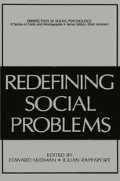Abstract
The term burnout refers to a phenomenon in the human services that is not new. Over 30 years ago, Schwartz and Will (1969) described essentially the same process as they observed it in a nurse on a psychiatric ward. But they did not call it burnout; instead, they used the term, low morale syndrome. They used terms such as anxiety, guilty and withdrawal. In this chapter, I shall propose that how we label and conceptualize the social problem of burnout reveals much about the underlying values and assumptions of our culture. Our labels and conceptualizations also dictate how we study and attempt to solve the problem. And finally, new ways of thinking about burnout ultimately could lead to a fundamental rethinking of human service delivery systems in our society.
Access this chapter
Tax calculation will be finalised at checkout
Purchases are for personal use only
Preview
Unable to display preview. Download preview PDF.
References
Bledstein, B. J. (1976). The culture of professionalism. New York: W. W. Norton.
Bockoven, J. S. (1963). Moral treatment in American psychiatry. New York: Springer.
Callahan, R. E. (1962). Education and the cult of efficiency. Chicago: University of Chicago Press.
Cherniss, C. (1979). Institutional barriers to social support among human service staff. In K. A. Reid & R. A. Quinlan (Eds.), Burnout in the helping professions (pp. 80–93). Kalamazoo: Western Michigan University.
Cherniss, C. (1980a). Staff burnout: Job stress in the human services. Beverly Hills, CA: Sage Publications.
Cherniss, C. (1980b). Professinal burnout in human service organizations. New York: Praeger.
Clark, B. R. (1970). The distinctive college. Chicago: Aldine.
Freudenberger, H. J., & Richelson, G. (1980). Burn-out. New York: Anchor Press-Doubleday.
Goldenberg, I. I. (1971). Build me a mountain: Youth, poverty, and the creation of new settings. Cambridge, MA: MIT Press.
Gottlieb, B. (1981). Social networks and social support in community mental health. Beverly Hills, CA: Sage Publications.
Grob, G. N. (1966). The state mental hospital in mid-nineteenth century America: A social analysis. American Psychologist, 21, 510–523.
Kanter, R. M. (1972). Commitment and community: Communes and Utopias in sociological perspective. Cambridge, MA: Harvard University Press.
Krantz, D. L. (1981). The psychologist as moralist. Unpublished manuscript, Lake Forest College.
Kuhn, T. (1962). Structure of scientific revolutions. Chicago: University of Chicago Press.
Lasch, C. (1979). The culture of narcissism: American life in an age of diminishing returns. New York: Norton.
Lazarus, R. S. (1966). Psychological stress and the coping process. New York: McGraw-Hill.
Levine, M., & Levine, A. (1970). A social history of helping services. New York: Appleton-Century-Crofts.
Marks, S. (1979, Summer). Culture, human energy, and self-actualization: A sociological offering to humanistic psychology. Journal of Humanistic Psychology, 19, 27–42.
Pines, A., & Aronson, E. (1981). Burnout. New York: Free Press.
Sarason, S. B. (1974). The psychological sense of community: Prospects for a community psychology. San Francisco: Jossey-Bass.
Sarason, S. B. (1977). Work, aging, and social change: Professionals and the one-life, one-career imperative. New York: Free Press.
Schwartz, M. S., & Will, G. T. (1969). Intervention and change on a mental hospital ward. In W. G. Bennis, K. D. Benne, & R. Chinn (Eds.), The planning of change (pp. 564–683). New York: Holt, Rinehart & Winston.
Selye, H. (1956). The stress of life. New York: McGraw-Hill.
Shearer, A. (1976). L’Arche. In President’s Committee on Mental Retardation, Changing patterns in residential care for the mentally retarded (pp. 355-369). Washington, DC: U. S. Government Printing Office.
Author information
Authors and Affiliations
Editor information
Editors and Affiliations
Rights and permissions
Copyright information
© 1986 Springer Science+Business Media New York
About this chapter
Cite this chapter
Cherniss, C. (1986). Different Ways of Thinking about Burnout. In: Seidman, E., Rappaport, J. (eds) Redefining Social Problems. Perspectives in Social Psychology. Springer, Boston, MA. https://doi.org/10.1007/978-1-4899-2236-6_13
Download citation
DOI: https://doi.org/10.1007/978-1-4899-2236-6_13
Publisher Name: Springer, Boston, MA
Print ISBN: 978-1-4899-2238-0
Online ISBN: 978-1-4899-2236-6
eBook Packages: Springer Book Archive

